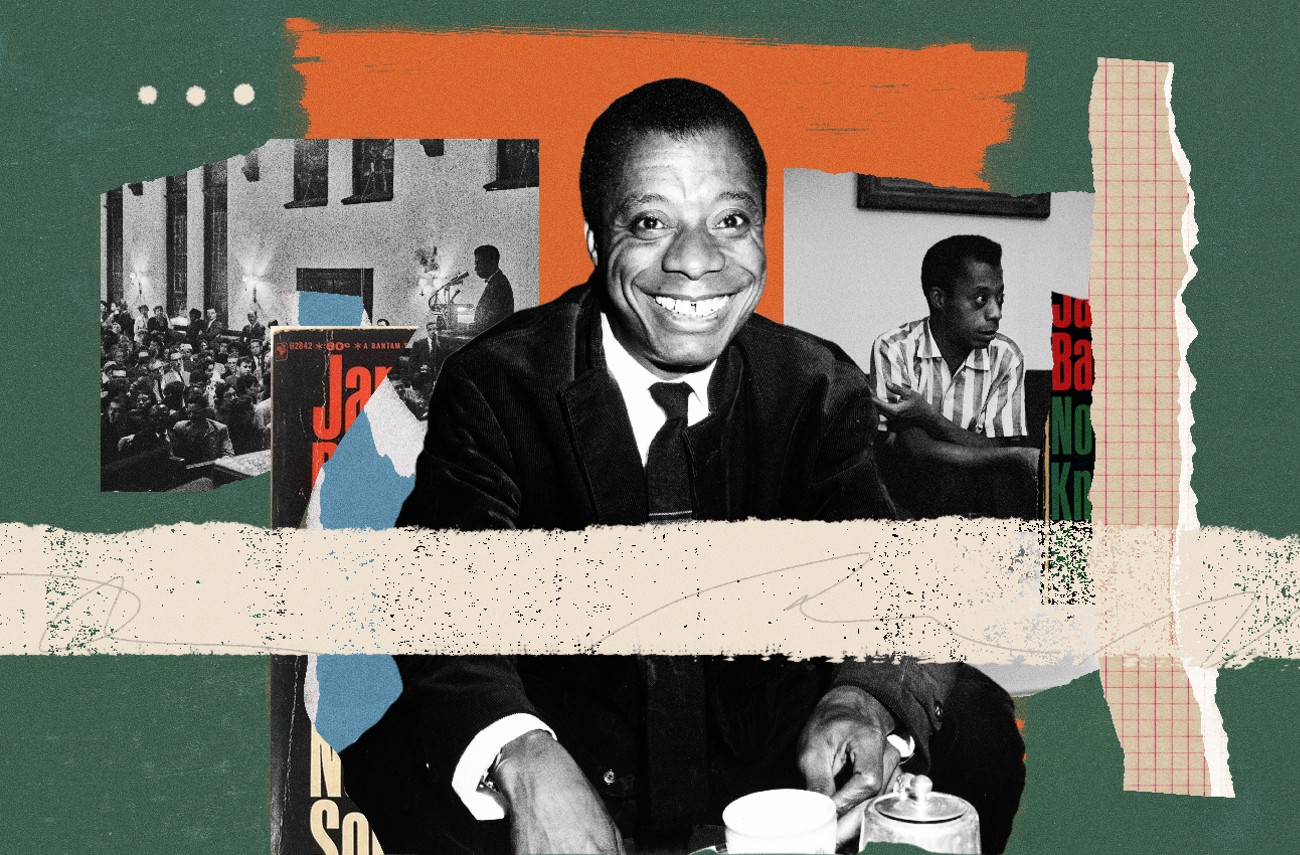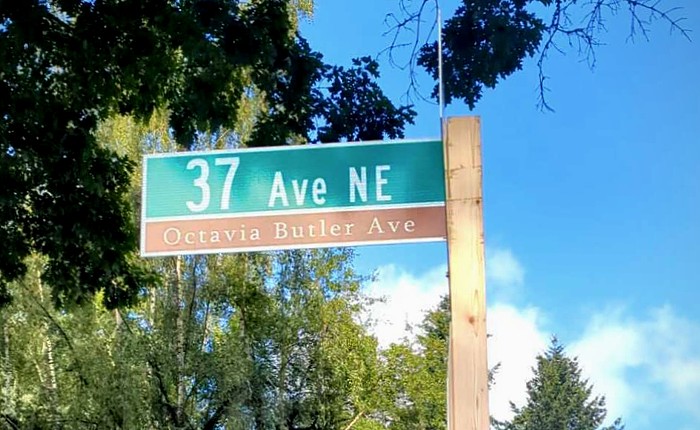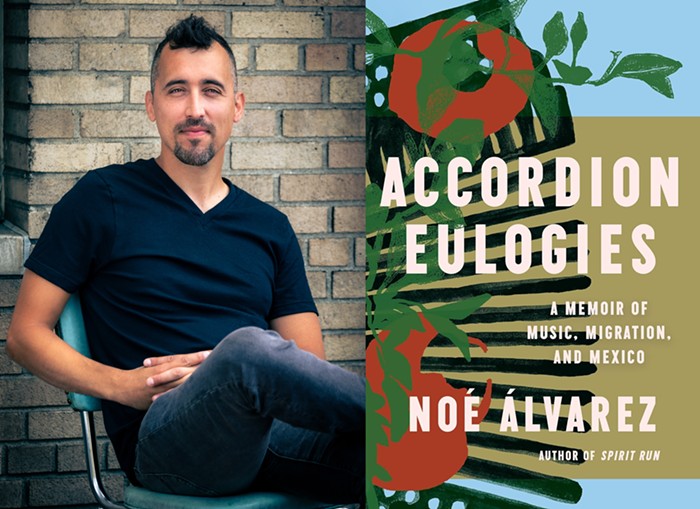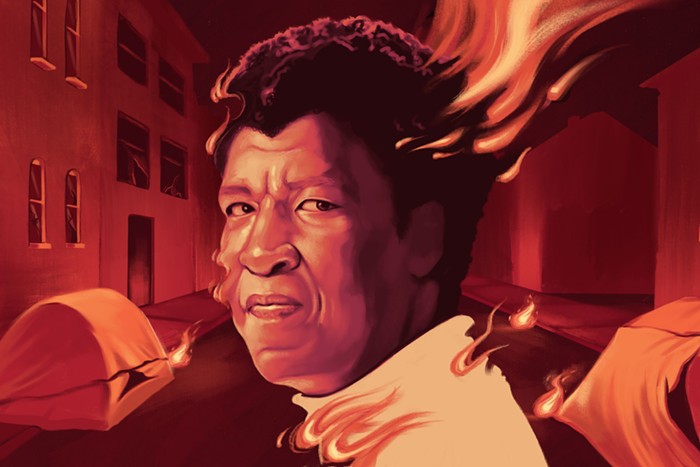My mother’s book club didn’t try to take me to see James Baldwin lecture at the University of Puget Sound in 1987 because they thought he was “God’s black revolutionary mouth,” as Amiri Baraka called him. To a person, the members were passionately cranky guardians of his work. They didn’t hesitate to call out Baldwin for the benign but noticeable mid- to late-career machismo he displayed most memorably in his articulation of phallus weight theories in the novel No Name in the Street. Yet they remained devoted fans, disdainful of the literary men who treated Baldwin no better than they would have treated the book club, and equally disdainful of the frail, lapsed liberals who saw him only as a good Black turned bad. The club certainly would not have had a problem with the New York Public Library’s Schomburg Center using Baraka’s description as the title for their exhibit celebrating Baldwin’s 100th birthday, which we celebrate today.
But this deification of Baldwin, which we hear in Baraka’s invocation of God in his eulogy, and which we read in Eddie Glaude's Begin Again and in Ta Nehisi Coates’s Between the World and Me, obscures the quality that made Baldwin so special: his humanity.
Now, don’t get me wrong. Like Glaude, I agree that the New Testament idea of redemption guided Baldwin's sensibility; it was behind the cadence of his breathtaking prose and his belief in love through relentless honesty about America. But Baldwin also believed that you could only achieve such honesty by doing away with the myths and fables that prevent us from being sensible humans. The New Jerusalem in Notes of a Native Son and in Nobody Knows My Name is set not in a Baptist church but in a secular, cosmopolitan world of ideas and humanism. The blueprint for avoiding hell in The Fire Next Time is a very secular, grounded world where human beings struggle to transcend the poisons of tribalism and see themselves in one another, a world that has nothing to do with the horrorcore in a lot of the Bible.
These writers–especially Coates, who I generally admire–also miss that you can't just grasp Baldwin by ginning up your commas and clauses. What made him as strong a candidate as anyone for the title of “Greatest Essayist in the History of the English Language” wasn't his elongated sentences, but rather the mind shown in their creation. In them was the power and pitch of perception found in both Henry James and the King James Bible. In them was the homegrown existentialism seen in both Thoreau and the blues. In them was the mindset of Montaigne and the music of Black speech. Yes, God plays an undeniable role in Baldwin’s work, but Baldwin was less a bishop than he was America's nonfiction answer to Jorge Luis Borges.
The image of Baldwin as a quasi-deity also doesn’t do service to the human story of his life as a fiction writer. My take on his novels is similar to that of Edmund Wilson, Lionel Trilling, James Wood, and my mother’s book club: he was majestic out of the gate, a terse titan whose works covered the linguistic waterfronts of Thomas Hardy, Honoré De Balzac, and the Fyodor Dostoevsky and Leo Tolstoy translated by Constance Garnett.
Go Tell It On the Mountain, his interior masterpiece about a Black church family in the crossroads on one holy and unholy storefront night, paved the way for writers like Toni Morrison to Angela Flournoy to create worlds drawing from their own inner lives. I particularly loved Giovanni’s Room, a book that first garnered attention for being a “gay novel with no Black characters'' and then later garnered recognition for being a brilliant parable of America by featuring a character who tries to convince the reader of his sexuality and of his moral righteousness but doesn’t come close to convincing the reader of either.
For Baldwin, the problem was that both books didn’t sell at the time, nor were they received well by his peers. They didn’t speak to issues in a way that addressed white people or presented white people as appealing characters, so a good deal of Baldwin’s critics deemed them to be minor. Baldwin was broke, had to pay his family's bills, and needed to write something that made money. So he took Another Country, gripping in its first 100 pages, which track the self-destruction and death of Rufus Scott, and then padded them with 300 pages that he admitted got away from his editorial eye. After I read those pages for a fourth time, they still ramble but are held together by the Jamesian ambiguity that Scott’s friends entertain over whether or not he was a saint, sinner, or something in-between.
Another Country and Tell Me How Long the Train’s Been Gone–an auto-fictional take on a personal breakdown–were as good as pulp potboilers about race can be. They were works that, along with his essays, made him one of the most recognizable figures in America. But wealth, status, and the traumas of fighting on the front lines for his people (and seeing the casualties in the process) had worn him out. On top of that, his critics at the time subjected him to a backlash that was brutal, rooted in misogyny, and histrionic. In short, he was too militant for his former liberal white friends, too liberal for Black radicals, and too gay for either side. The near-miss Black editor/writer tandem of the century (between him and Toni Morrison) only underscores the tragedy of Baldwin as a pop literary figure: he was tired out of his mind and beholden to publishers who needed him to stick to his melodramatic brand.
My earliest memories come from my mother’s book club processing that later Baldwin, the one they had a living history with as readers. I can still hear and see them walking by bus stops and pointing to passages of If Beale Street Could Talk, both the ones they held to their heart and the ones they were sure Morrison could have fixed enough to make believable. At the Antique Sandwich Company where they used to congregate, I can still see them at the big table, talking about the places Morrison would have cut in Just Above My Head before declaring it to be his best novel since Country and a point where he evolved on gender.
More than that, I can see them surrounding the RA in the Thomson Hall parking lot of the University of Puget Sound where mom (with her voice breaking) said that Baldwin wasn’t going to read that night because of horrible throat problems. The book club had gone through Baldwin’s mid-career machismo with a fine tooth comb, but by 1987 he was enough of a committed ally to be the only major Black man in the literary canon to stand up for Alice Walker’s The Color Purple. The sadness in that circle didn’t stem from concerns over the health of a performatively perfect man, but rather from the recognition that a man who loved them enough to change his behavior was going to die.
This is the writer I can’t get out of my head, the one that transcends the transcendent figure that so many make of him, in part to make up for the poor reception from the racist and homophobic critics of this time. As Faulkner did with fiction, Baldwin’s essays and nonfiction books gave America a tragic reference language to deal with its past and present, a language that so many writers have built on and drawn from. To sanctify that legacy is to draw attention away from the living miracle that it was even there in the first place, to paraphrase another great Baldwin critic, Vivian Gornick. James Baldwin was the most human writer in the history of the western canon. I thank God for that every day.



















